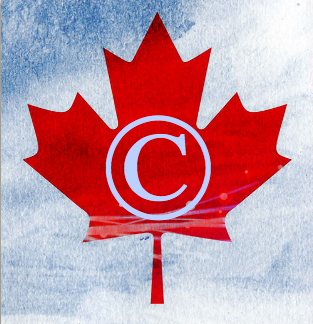Canadian Copyright Law: Fair Dealing
 We’ve written previously in this blog about the concept of fair use under U.S. copyright law, and its impact on publishers and folks reusing their content. In addition, our licensing service helps publishers provide tips to readers for evaluating when permission should be obtained to reuse content.
We’ve written previously in this blog about the concept of fair use under U.S. copyright law, and its impact on publishers and folks reusing their content. In addition, our licensing service helps publishers provide tips to readers for evaluating when permission should be obtained to reuse content.
While copyright law in the United States has fair use exceptions to the prohibition against copying a work without permission of the owner, the analogous concept in Canada is called fair dealing. The concepts are not identical, and since iCopyright has an increasing number of Canadian publishers using its services we’ve decided to create Canada-specific language that Canadian publishers can display when their readers seek guidance on when a license is required.
Canadian Copyright Law: Fair Dealing
A draft of the proposed guidance language on fair dealing in Canada is provided below. As always, publishers will be able to tweak the wording as they see fit in their Conductor console. The language will be displayed when a reader starts to copy/paste from a publisher’s site, a template offering to sell a license for an excerpt is popped, and the reader is offered a link entitled “Do I need a license to republish an excerpt from this article?” (You can see how this works by trying to copy/paste several paragraphs from this blog post.)
___________________________________________________________
Fair Dealing
Do I need a license to republish an excerpt from this article?
Copyright law in Canada is governed by the Copyright Act, a federal statute (“Act”). Copying a work or a substantial part of it requires the permission of the copyright owner unless one of the exceptions in the Act applies. Fair Dealing is an exception to the prohibition against copying a work without the permission of the owner.
The fair dealing exception is set out in sections 29, 29.1 and 29.2 of the Act. The fair dealing exemption was included in the Copyright Act in order to maintain a proper balance between the rights of the copyright holder and users’ interests. Amendments to the Copyright Act (“Bill C-11”) which became effective i expanded the fair dealing exemption.
Bill C-11 also prohibited the circumvention of any technological protection measure controlling access to a work. The fair dealing exceptions do not apply to the copying of works where access to the works was gained by circumventing technological protection measures.
If a technological protection measure is not in place, the law imposes a two part test for qualifying under the fair dealing exemption. Your proposed activity must pass both tests.
Firstly, your intended use of the copies that you make must be for research, private study, education, parody, satire, criticism, review or news reporting. To pass this first test when reusing an article you should also mention the source and, when available, the author.
Secondly, your use of the copyrighted work based upon one of the above exceptions must be “fair”. The “fairness factors” that must be considered are:
- the purpose of the use (or “dealing”),
- the character of the use,
- the amount of the use,
- whether alternatives to the use exist,
- the nature of the work being copied, and
- the effect of the copying on the work.
These factors must be applied and weighed on a case-by-case basis. Some of the considerations in applying these factors include: whether the use is for commercial or charitable purposes, whether the reproduced work is likely to compete with the market of the original, whether the copy was made available to a single person or many people, and the quantity of the work taken.
Click here to see an extract from the Supreme Court of Canada case CCH Canadian Ltd. v. Law Society of Upper Canada [2004] 1SCR 339 which discusses the six fairness factors.